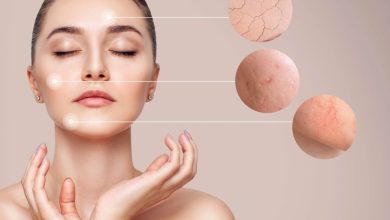How Inadequate Testosterone Levels Affect Your Health

Millions of men suffer from low testosterone levels but don’t realize it. Low testosterone, or “low T,” can lead to a number of problems, including weight gain, fatigue, and decreased libido. In severe cases, it can even cause depression. Testosterone replacement therapy is one way to combat the effects of low T, but it’s not right for everyone. This blog post will explore the signs and symptoms of low testosterone and help you decide if trt therapy near me is right for you.
What is Testosterone?
Before we dive into the signs and symptoms of low testosterone, let’s first take a quick look at what testosterone is and why it’s so important. Testosterone is a hormone that’s produced by the testes in men and by the ovaries in women. It’s responsible for the development of male characteristics, such as facial hair and a deep voice. In both sexes, it plays an important role in sex drive, bone health, and muscle mass.
As men age, their bodies produce less and less testosterone. This often leads to a decrease in sex drive, fatigue, weight gain, and depression. Testosterone replacement therapy can help combat these effects by supplementing the body’s diminishing testosterone levels. However, before you decide to start testosterone therapy, it’s important to consult with your doctor to see if trt therapy online right for you.
Signs and Symptoms of Low Testosterone
There are a number of signs and symptoms that could indicate that your testosterone levels are low. If you’re experiencing any of the following, it might be time to talk to your doctor about testosterone replacement therapy:
- Decreased sex drive – A lack of interest in sex is one of the most common signs of low testosterone. If you used to enjoy a healthy and active sex life but now find yourself disinterested, it could be a sign that your testosterone levels are low.
- Fatigue – Feeling tired all the time is another common symptom of low T. If you find it difficult to get out of bed.
- Difficulty getting or maintaining an erection – Men with low testosterone levels typically have difficulty getting or maintaining an erection.
- Loss of muscle mass – Testosterone plays an important role in muscle growth. So, if you’re noticing a loss of muscle mass, it could be due to low testosterone levels.
- Weight gain – Low testosterone can lead to weight gain, particularly around the waist.
- Depression – Depression is another common symptom of low testosterone. If you’re feeling down or hopeless, it could be due to low T.
- Irritability – Men with low testosterone levels often report feeling irritable or angry.
If you’re experiencing any of these signs and symptoms, it’s important to talk to your doctor. They can order a blood test to check your testosterone levels and determine if testosterone replacement therapy is right for you.
Causes of low testosterone
While there are many potential causes of low testosterone, some of the most common include age, obesity, and certain medical conditions. Age is a natural cause of declining testosterone levels. As men get older, their bodies produce less of the hormone. Obesity can also lead to low testosterone levels. Fat tissue converts testosterone into estrogen, which can lower overall levels of the hormone in the body. Lastly, certain medical conditions such as diabetes or pituitary gland disorders can also lead to low testosterone production. Regardless of the cause, low testosterone can be a serious issue for men and it is important to talk to a doctor if you think you may be affected.
How to get tested for low testosterone
There are a few different ways to do this.
- First, you can ask your doctor for a blood test. This is the most accurate way to measure your testosterone levels. However, it’s also the most expensive and time-consuming option.
- Second, you can use a home testosterone test kit. These kits are available online and at some pharmacies. They’re less expensive than a blood test, but they’re also less accurate.
- Finally, you can take an online quiz. This is the least accurate option, but it’s also the quickest and most convenient.
If you think you may have low testosterone, talk to your doctor about testing options.
Treatment options for low testosterone
Low testosterone is a common condition that can cause a variety of symptoms, including fatigue, decreased libido, and erectile dysfunction. While there is no cure for low testosterone, there are treatments that can help to improve symptoms. One option is testosterone replacement therapy, which can be delivered via injections, patches, gels, or implants. This treatment can help to increase energy levels and libido, and it may also improve cognitive function and bone density. Another option is sex hormone therapy, which can be used to treat the underlying causes of low testosterone. This approach may involve taking medications to improve fertility or managing underlying health conditions such as obesity or sleep apnea. Ultimately, the best treatment option for low testosterone will vary depending on the individual’s symptoms and health history.
The benefits of testosterone replacement therapy
Although testosterone is often thought of as a male hormone, it is actually produced by both sexes. Testosterone plays an important role in regulating energy levels, bone density, and red blood cell production. It also helps to maintain muscle mass and sex drive. As men age, their testosterone levels gradually decline, which can lead to fatigue, weight gain, and reduced muscle mass. Testosterone replacement therapy can help to offset these effects by boosting testosterone levels back to their normal range. In addition to improving energy levels and sex drive, testosterone therapy has also been shown to improve bone density and reduce the risk of heart disease. As such, it can provide a wide range of benefits for both men and women.
Conclusion:
In this blog, we have covered what low testosterone is, some of the potential causes, and some treatment options that are available. Low testosterone can be a serious issue for men and it is important to talk to a doctor if you think you may be affected. Testosterone replacement therapy is one option that can help to improve symptoms, and it has a wide range of benefits for both men and women.



